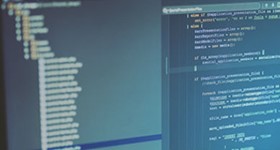How to become a Data Scientist: 3 skills you never thought you should have

Asian Tigers, Singapore and Hong Kong, remain in the forefront as Asia’s regional big data hub. Promising at least SGD1 billion to each of its economy each year, data science have been undoubtedly a high-growth sector. Coupled with its city-state’s significant infrastructure investment, Singapore champions’ innovation as part of its goal to become the world’s first Smart Nation.
The growth of data science is not only picking up pace but is spreading its presence across dominant industries such as finance. Such burgeoning needs for data analytics will be coupled with a drive to secure the best talent in the field.
YOU can be a data scientist
At first glance, breaking into a highly specialised market like data analytics and data science can seem intimidating without the technical skillsets – data science is however not just about code and algorithms. If you have a background in mathematics, statistics economics or technology, you could have the transferrable skills that can help you transition smoothly into a data scientist role.
So what are the top 3 skills you never thought you should have to transform you into the next most sought after data analyst candidate?
- Possess business knowledge
Employers are predominantly looking for experienced data science professionals who understand the business needs before interpreting data. As big data continues to grow in size and in complexity, it is essential that current data scientist and analysts:
- Understand the business problem
- Understand what data is available, and
- Map the problems and data sets to the right technology i.e Machine learning (ML) and artificial intelligence (AI)
You will need to think creatively about business problems. This includes being able to translate decision makers’ business-related questions into useful questions about data. As software takes over a growing number of tasks, the value of data analysts may depend more and more on their ability to apply human judgment to business challenges. ML and AI may therefore make critical thinking and problem-solving skills even more crucial in the future.
- Have good communication skills and relationship management
Being able to extract, collate and interpret data are core technical skills for data analysts. However, the new-age data analysts will also to translate data-sets of mathematical results into an actionable insight and communicate it back to the business.
To do so, this requires superior communication and interpersonal skills to engage your stakeholders to get the buy in of your findings. This is simply because being a good communicator includes the ability to filter challenging technical information into simple terms, without leaving out key insights.
Data is only valuable when data analysts are able to make use of technology and computational resources and align them with areas of interest to the organisation.
- Have a keen eye for detail
Being more agile, open-minded and adaptable, marketing specialists for instance can apply their good communication skills and cultural sensitivity to adapt to new environments. This is apparent in various people who come from a background in mathematics and statistics.
Data scientists and analysts should also be able to keep a look out for computational cost to the ecosystem, interpretability, latency, bandwidth, and other system boundary conditions — as well as the maturity of the customer — itself helps the data scientist understand what technology to apply
A sharp data scientist needs to understand the concepts of analysing business risk, making improvements in processes, and how systems engineering works.
An added advantage: Possessing programming knowledge
Experienced data professionals — especially senior data scientists — stand to gain the most from the current job market outlook as they have honed their technical skill sets.
For aspiring beginners, R and Python are the most popular languages for data analytics to pick up. R excels at developing programs for statistical analysis, while Python is often useful for automating repetitive tasks and creating visualizations of data.
Structured Query Language (SQL) is virtually a universal requirement. SQL allows analysts to code their own customised queries and pull extremely detailed data from relational databases. To work with large datasets using frameworks such as Hadoop, analysts might have to learn an additional query language such as HiveQL.
Singapore and Hong Kong preparing for the future
Singapore in particular is preparing its younger generation for the future workforce. At upper primary school levels, students will be exposed to core computational and coding concepts through simple visual programming-based lessons from 2020 onwards.
At tertiary levels, degree and master’s programme have been initiated at local universities:
- Sc/ B.Sc (Hons.) In Data Science And Analytics By National University Of Singapore
- MSc In Accounting (Data And Analytics) By Singapore Management University
- Sc In Analytics Programme By Nanyang Technological University
In Hong Kong, some efforts have begun to instil code literacy. Reported by South China Morning Post, the City University Apps Lab have been running a series of workshops called "We Can Code” for secondary school students. At the same time, Code Club HK established as a volunteer-run network to promote coding among children aged from nine to 11 during after-school activities.
While the nations build its pipeline of data scientists for the future, it also never too late for current enthusiasts to pick up the ropes and be open to this exciting field.
Ready to take a chance in data science and analytics?
If you are interested in finding out more about the hottest jobs within the sector, our consultants in Huxley are here to share with your first-hand information on the latest trends. Please contact us by filling up the form below. If you’d like to be up-to-date with industry trends, follow us on our LinkedIn page.



